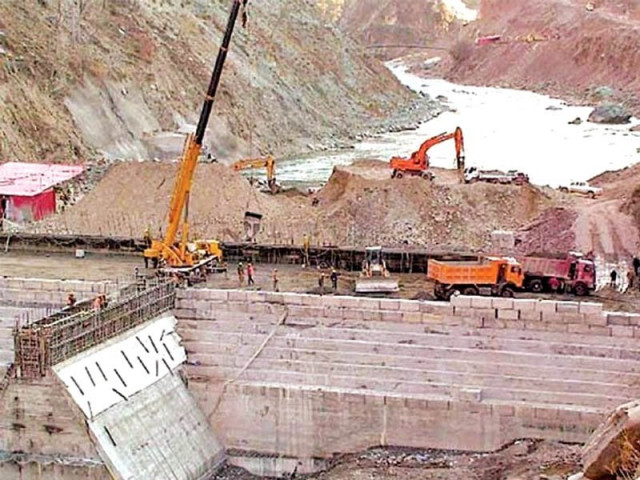For a few pennies more: Chinese firm may abandon project over tariff row
China Three Gorges Corporation is working on 720MW Karot power project, for now.

It will take China Three Gorges Project Corporation four years to complete the Karot power project costing $1.6 billion, if disputes are resolved. PHOTO: FILE
China Three Gorges Project Corporation (CTGPC) has threatened to pull out of the 720-megawatt Karot Hydropower Project if the longstanding tariff issue is not settled with the power sector’s regulator.
Officials of the National Electric Power Regulatory Authority (Nepra) – the regulator that determines power tariff – and the Private Power Infrastructure Board (PPIB) revealed this here on Wednesday during a meeting of the Senate Standing Committee on Water and Power, chaired by Zahid Hussain.
Nepra’s Member Tariff Khawaja Muhammad Naeem told the panel Chinese firm CTGPC was piling on the pressure to get approved the power tariff it sought, but he made it clear that the government had to work within the legal framework.
“Once we decide a tariff for the project, the firm comes again calling for a revision,” he said, but cautioned that the company had alternatives available and could take up other projects across the world.
“It can leave if its problems are not addressed. In this case, we will fall down the company’s priority list and it may come back after 15 years,” he said.
According to Naeem, the company will take four years to complete the project costing $1.6 billion, but to speed up work the government has offered incentives to the company to end work before time. A meeting will be held on Friday to settle the issue.
China Three Gorges had hinted at a tariff of 6.7 cents per unit in the feasibility study, but Nepra set the rate at 5.395 cents.
The company, which did not accept this tariff, was asked to file a review with the regulator, which then increased the tariff to 6.5 cents per unit.
“CTGPC still has reservations about the tariff rate and has also rejected the cap placed on loan interest rate,” PPIB Managing Director NA Zuberi told the committee, clarifying that lifting of the cap would lead to an increase in tariff in case the interest rate went up.
Participants of the meeting pointed out Chinese firms were facing problems in initiating hydropower projects in Azad Jammu and Kashmir (AJK) because of delay in issuance of no-objection certificate. They asked the panel to intervene and take up the matter with the Ministry of Interior.
Water and Power Development Authority (Wapda) Chairman Syed Raghib Hussain Shah sought the panel’s support for 1,160-megawatt hydropower projects, costing $4 billion and being developed in collaboration with South Korean firms on the public-private partnership model.
The Korean firms will arrange 95% of financing for the projects and the rest will be contributed by Khyber-Pakhtunkhwa government and Wapda. A committee comprising PPIB MD, Nepra chairman and KPK energy secretary has been constituted to look into it.
Alternate Energy Development Board (AEDB) MD Arif Alauddin revealed that eight out of top 10 firms recognised in the world were manufacturing wind turbines in Pakistan.
“Wind tariff is 13 cents per unit against 1.3 cents for hydroelectric power,” he said, stressing that the tariff would come down to 4.5 cents after 10 years following the return of loans.
Though solar tariff had not been determined, it could be in the range of 18 to 20 cents per unit against 9 to 11 cents in India, he added. “In 2007, 4,000 solar water heaters were being used and the number has increased to 1.2 million now,” he said.
Objecting to the acting charge of secretary water and power given to Nargis Sethi, the panel insisted that a permanent secretary should be appointed.
Published in The Express Tribune, January 31st, 2013.



















COMMENTS
Comments are moderated and generally will be posted if they are on-topic and not abusive.
For more information, please see our Comments FAQ